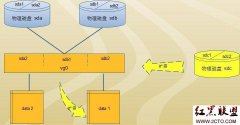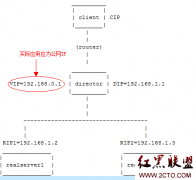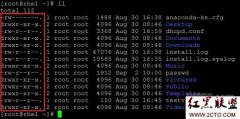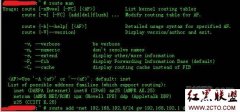鸟哥的Linux私房菜-基础学习篇5
24.vi,vim文字处理器
/word,?word,dd,ndd,yy,nyy,p,P,i,Esc,:q!,:wq,:set nu
vim具有颜色显示功能,并且支持许多程序语法(syntax),无论是C还是shell脚本
vim设置值一般放在/etc/vimrc文件中,建议修改~/.vimrc文件
25./bin/bash,Linux默认的shell
命令记忆功能~/.bash_history
命令与文件补全功能tab键
命令别名alias设置功能alias lm = 'ls -al'
作业控制(jobs)、前台、后台控制
Shell scripts的强大功能
通配符
26.type [-tpa] name
显示name是外部命令还是bash内置的命令
27.变量的获取与设置:echo、变量设置规则、unset
#PATH=$PATH:/home/allen/bin
环境变量的功能:env
set命令:除了会将环境变量列出来之外,其他自定义变量,以及所有的变量,都会列出来
自定义变量转为环境变量:export
变量键盘读取、数组与声明:read、array、declare
与文件系统及程序的限制关系:ulimit
命令别名与历史命令:alias,unalias,history
登陆消息显示数据:/etc/issue,/etc/motd
28.系统设置值
/etc/sysconfig/i18n
/etc/profile,/etc/profile.d,/etc/inputrc
/etc/bashrc
/etc/profile.d/*.sh
/etc/man.config
29.个人设置价
~/.bash_profile,~/.bash_login,~/.profile
~/.bashrc:在每次执行shell脚本的时候,都会重新读取这个文件
~/.bash_history
~/.bash_logout
30.先读取/etc/profile,再根据/etc/profile的内容去读取其他附加的设置文件,例如/etc/profile.d与/etc/inputrc等设置文件
根据不同的用户,到用户家目录去读取~/.bash_profile或~/.bash_login或~/.profile等设置文件
根据不同的用户,到家目录去读取~/.bashrc
登陆shell与非登陆shell
31.数据流重定向
标准输入stdin:代码为0,使用<或<<
标准输出stdout:代码为1,使用>或>>
标准错误输出stderr:代码为2,使用2>或2>>
#find /home -name testing > list 2>&1
32.命令执行的判断依据:;、&&、||
#ls /tmp && touch /tmp/test
变量$?,如果命令执行结果没有错误消息,就会回传$?=0,如果有错误,回传值就不是0.通过这样的判断,利用&&来决定,当前面的执行结果为正确时,可以接着执行后续命令
#ls /tmp || touch /tmp/test
||与&&完全相反,当前一个命令有错误时,才会执行||后面的命令
33.管道ls -al /etc | less
34.选取命令:cut、grep
#cut -d '分隔符' -f fields
#echo $PATH | cut -d ':' -f5
#echo $PATH | cut -d ':' -f3,5
#grep [-acinv] '搜索字符串' filename
#last | grep 'root'
#last | grep -v 'root'
#last | grep 'root' | cut -d ' ' -f1
35.排序命令:sort、wc、uniq
根据不同的数据类型来排序,/etc/passwd内容以:来分隔的,取第三栏来排序
#cat /etc/passwd | sort -t ':' -k 3
#last | cut -d ' ' -f1 | sort | uniq -c
#cat /etc/man.config | wc -l
双向冲导向:tee
#last -l /home | tee home.txt | cut -d ' ' -f1
作者“allenhu0320”
- 发表评论
-
- 最新评论 进入详细评论页>>







